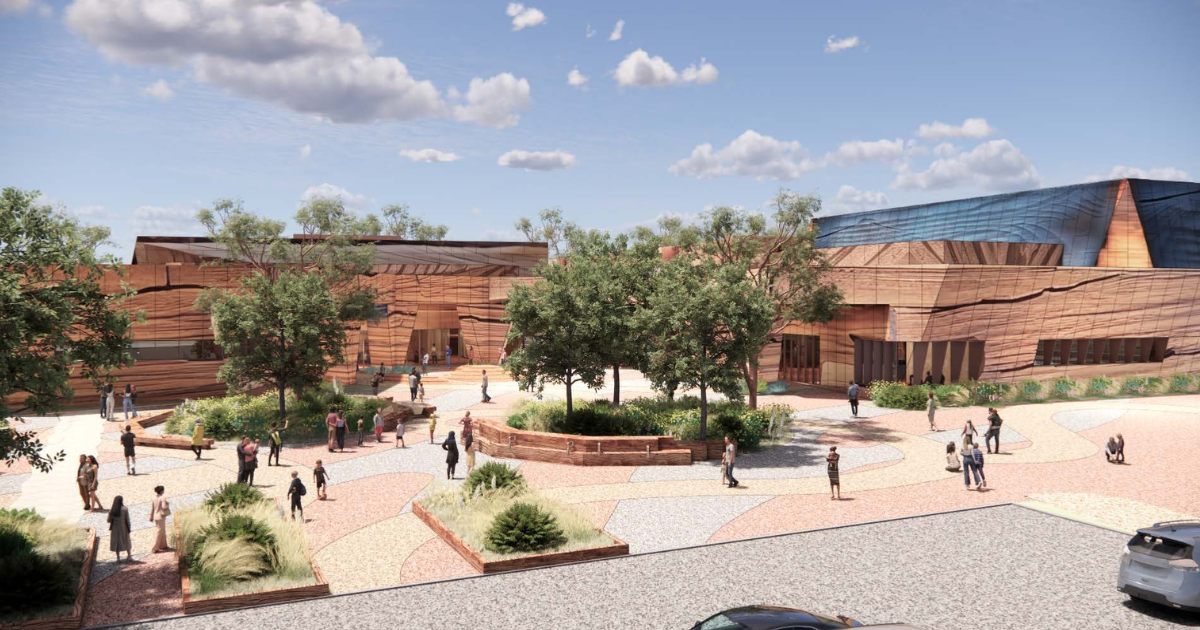Barwon Water wins with climate innovation research

(L-R) Barwon Water's circular economy project advisor Emma McKinnon, managing director Shaun Cumming, and innovation and sustainability specialist Hayley Vinden. Photo: SUPPLIED
A PAIR of change research projects partly run by Barwon Water staff members were joint winners of the Water Minister’s Climate Innovation Challenge (WMCIC) award.
The challenge aimed to identify and reward groundbreaking projects addressing climate change within the water sector.
Barwon Water was recognised for its “Meta-analysis of low carbon cement alternatives for water industry applications”, and “Cellulose recovery from wastewater” research projects.
The former was a collaboration between Yarra Valley Water, North East Water, and Barwon Water.
It focused on identifying greener alternatives to concrete, a major contributor to global carbon emissions.
Cement, which makes up a significant portion of concrete, generates about 8 per cent of the world’s carbon emissions.
The winning team, led by Hayley Vinden (Barwon Water), Lisa Ehrenfried (Yarra Valley Water), and Jill Fagan (North East Water), was awarded a $30,000 grant to explore low-carbon cement alternatives and aims to create a blueprint for global implementation within the water industry.
The second award winning project was led by Barwon Water’s Emma McKinnon and received a $20,000 grant.
Ms McKinnon’s project addresses the environmental impact of toilet paper consumption, a significant contributor to deforestation.
The Australian-first solution explored in the research extracts high-quality cellulose fibres from flushed toilet paper, recovering 82 per cent to 98 per cent of the cellulose content.
Celluose is a versatile raw material and has applications in civil engineering, construction, agriculture, chemicals, energy, and paper and cardboard production, promoting a circular economy and reducing environmental impact.
The project also offers a 20 per cent reduction in energy consumption in wastewater treatment, a 10 per cent increase in treatment plant capacity, and the potential to save at least one tree and prevent up to 2.5 tonnes of CO2 emissions for every tonne of cellulose upcycled from wastewater.
At Barwon Water’s Black Rock Water reclamation plant, this equates to saving between seven to eight trees a day and preventing 19 tonnes of carbon emissions.
Barwon Water managing director Shaun Cumming said he was proud of Ms Vinden and Ms McKinnon for research that pus the organisation at the cutting edge of emissions reduction in the water sector.
“We are thrilled to be acknowledged in the Water Minister’s Climate Innovation Challenge.
“These victories underscore our commitment to pioneering sustainable solutions in the water industry and achieving zero net emissions by 2030.”
Barwon Water says it is appreciative of the support received through the WMCIC funding, which will contribute to proving the feasibility of these innovative projects in Australia.
The water authority says it is dedicated to advancing sustainability and driving positive change within the water industry.

















